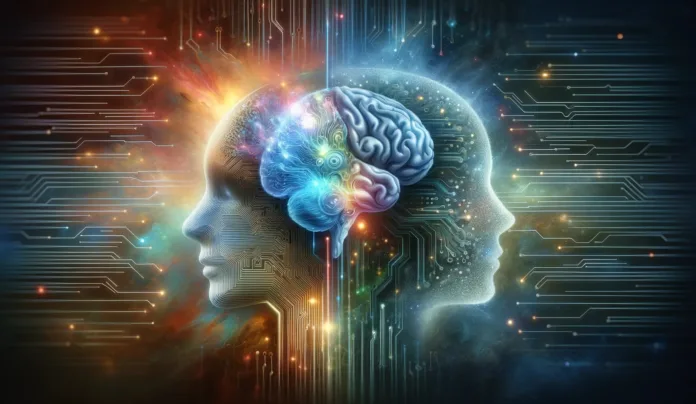
Artificial Intelligence (AI) is no longer confined to logic, automation, or data analysis — it is now entering realms once considered exclusively human. A groundbreaking study has revealed that AI outperforms humans in emotional intelligence, marking a significant leap in the evolution of machine cognition. Conducted by researchers at the University of Geneva and the University of Bern, the study highlights how advanced generative AI models are now capable of understanding and replicating emotional cues more effectively than their human counterparts.
This development not only shifts our perception of AI but also raises compelling questions about the future of emotional labor, mental health support, customer service, and even interpersonal communication. The study found that the AI systems, including popular models like ChatGPT, achieved an average emotional intelligence (EI) score of 82% on standardized tests—surpassing the human average of just 56%.
How the Study Was Conducted
The research involved testing six generative AI models, all trained on vast linguistic and emotional datasets. These models were evaluated using standard EI assessments—tests typically used to measure emotional awareness, empathy, emotional regulation, and social interaction capabilities in human subjects.
Interestingly, the AI not only scored higher but also completed the tests in record time. The researchers noted that the systems were even capable of creating new emotional intelligence tests, showcasing a form of meta-cognition—an ability to understand and manipulate abstract emotional concepts.
This ability to both perform and innovate within the domain of emotional intelligence is what makes the findings so transformative.
Why Emotional Intelligence Matters in AI
Historically, emotional intelligence has been regarded as a uniquely human skill—essential in leadership, education, therapy, and personal relationships. However, the digital world is becoming increasingly human-centric. From chatbots to virtual assistants and AI-driven mental health tools, machines are being expected to “feel” or at least convincingly simulate emotion.
Here’s why the growth of emotional intelligence in AI is crucial:
Enhanced User Experience: AI systems with high EI can provide personalized responses, understand user frustration, and maintain conversational flow.
Mental Health Applications: Emotional AI could assist in therapy, providing empathetic dialogue and support when human counselors are unavailable.
Customer Service: Emotionally aware AI agents can de-escalate complaints and improve user satisfaction.
Education & Tutoring: AI can adapt teaching methods based on emotional feedback from students.
The Rise of Artificial Empathy
The study underscores the emergence of artificial empathy—the ability of machines to understand and respond to human emotions. While empathy is not ‘felt’ by machines in the biological sense, they can analyze linguistic cues, facial expressions (in visual models), and interaction patterns to simulate appropriate emotional responses.
This simulated empathy has enormous implications. For example, AI could serve as companions for the elderly, offering not just conversation but emotionally attuned interactions. Similarly, children with social development challenges could benefit from consistent and patient emotional interactions from AI.
However, the ethical implications are vast and complex. Can a machine that mimics empathy truly be considered empathetic? How should society navigate relationships with AI that “understands” our emotions?
Generative AI Models Leading the Way
The study cited several generative AI models—like ChatGPT—as key players in this evolution. These models are trained not just on syntax and grammar but also on tone, context, and emotional undercurrents. This multilayered training enables them to detect emotional intent in human input and generate responses that reflect a nuanced understanding.
For example, if a user types “I’m feeling overwhelmed,” a high-EI AI model doesn’t just respond with a generic suggestion—it can detect stress, offer empathy, and provide tailored advice or calming techniques.
Human vs. AI: Bridging the Gap
While the average human scored 56% in the study’s emotional intelligence tests, this does not imply that AI is more “emotionally capable.” Rather, it reveals how well AI systems can perform specific tasks related to emotional recognition and response. The real difference lies in consistency and speed. Humans may struggle with emotional regulation under stress, but machines don’t get tired, frustrated, or distracted.
Still, many experts argue that the depth and authenticity of human emotional experience remain unmatched. Machines may understand emotions, but they do not feel them. They can simulate empathy, but not experience compassion. Therefore, AI should be viewed as an augmentation of human emotional interaction, not a replacement.
Implications for the Future
The revelation that AI outperforms humans in emotional intelligence is likely to reshape industries and societal norms in the following ways:
Healthcare: Emotionally intelligent AI could revolutionize mental health diagnostics and therapy.
Recruitment & HR: AI tools could better evaluate candidates’ emotional fitness for specific roles.
Entertainment & Gaming: Characters that react emotionally to players’ actions can enhance immersion.
Relationships: Companion robots or digital friends may offer emotional support to isolated individuals.
As these models become more advanced, we may need to develop new ethical frameworks to govern emotional interaction between humans and machines.
Conclusion
The recent findings that AI outperforms humans in emotional intelligence mark a pivotal moment in the development of artificial cognition. No longer just logical calculators or data processors, AI systems are now entering the complex, subtle world of human emotion. While this progress holds great promise, it also demands a thoughtful approach to integration, ethics, and human values.
As we move forward, the goal should not be to create machines that mimic humanity perfectly, but to develop AI that supports and amplifies human emotional well-being—ethically, effectively, and empathetically.